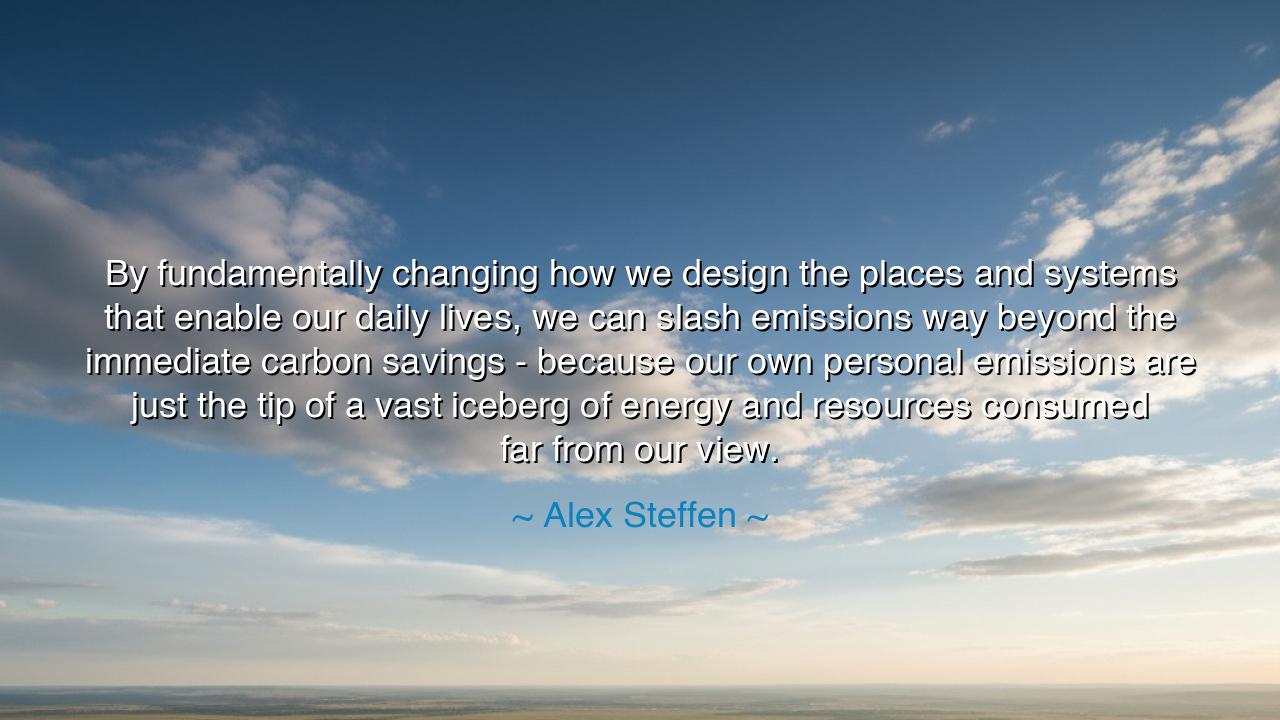
By fundamentally changing how we design the places and systems
By fundamentally changing how we design the places and systems that enable our daily lives, we can slash emissions way beyond the immediate carbon savings - because our own personal emissions are just the tip of a vast iceberg of energy and resources consumed far from our view.






In the visionary and urgent words of Alex Steffen, the declaration — “By fundamentally changing how we design the places and systems that enable our daily lives, we can slash emissions way beyond the immediate carbon savings — because our own personal emissions are just the tip of a vast iceberg of energy and resources consumed far from our view.” — is not merely a reflection on sustainability; it is a call to awakening. Beneath its rational surface burns a moral and almost spiritual truth: that humanity, in shaping the world, also shapes its destiny. Steffen reminds us that the true measure of change lies not in the isolated acts of individuals, but in the design of the systems that govern our collective existence — the unseen structures of cities, industries, and economies that hold both the cause and cure of our planetary crisis.
The meaning of this quote lies in its deep recognition of interconnectedness — the understanding that our daily lives, though seemingly small, are woven into vast webs of production, consumption, and energy. Steffen speaks to the illusion of isolation: the belief that our personal choices, though noble, can alone transform the future. He reveals that our emissions — the cars we drive, the electricity we use, the waste we produce — are but the visible portion of a much larger reality. Beneath the surface lie the hidden costs of civilization: the factories that hum across oceans, the shipping lines that cross the seas, the extraction of minerals and metals buried deep in the earth. To change the world, he tells us, we must not only alter our habits — we must redesign the stage upon which human life unfolds.
The origin of these words flows from Steffen’s lifelong work as an environmental thinker and futurist — a voice dedicated to building what he calls a “bright green future.” In his writings and lectures, he has argued that solving the climate crisis demands more than restraint; it requires innovation and imagination. The problem is not simply that we consume too much, but that our world is built






AAdministratorAdministrator
Welcome, honored guests. Please leave a comment, we will respond soon